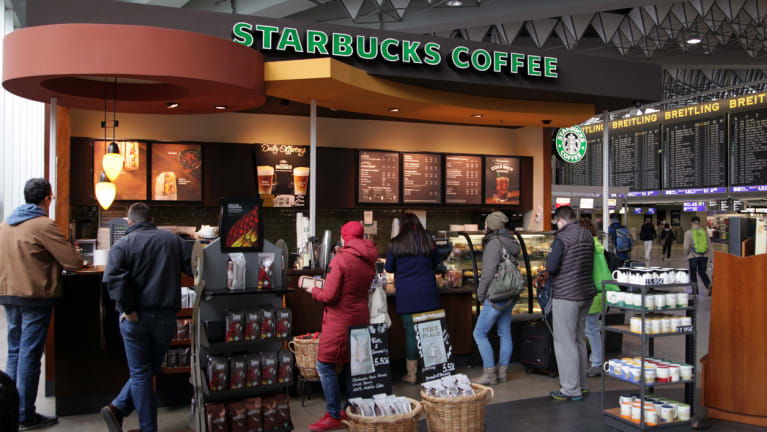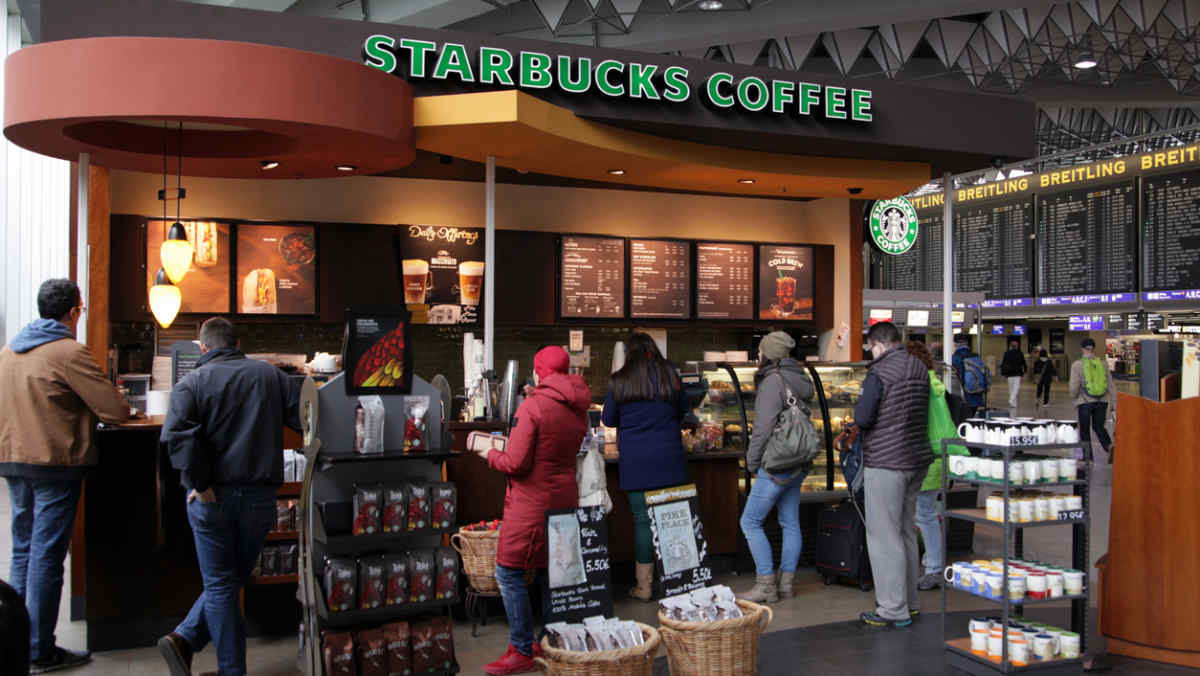

?Starbucks illegally fired two workers and interfered with union organizing at two stores in Philadelphia, a National Labor Relations Board (NLRB) panel recently concluded.
In its Feb. 13 ruling, the board found that managers of the coffee shop chain violated the law by:
- Firing two workers in 2020 for engaging in union activities.
- Reducing two employees’ work hours for engaging in union activities.
- Interrogating employees about their union activities.
- Monitoring employees’ social media accounts to discover their union activities.
- Withholding a training opportunity from a worker in 2019 because of his union activity.
- Prohibiting employees from discussing their terms and conditions of employment.
- Requiring an employee to stop making complaints about a store manager.
The board ordered the company to reinstate the two workers who had been fired, give them back pay, and cover their search-for-work and interim employment expenses. It rejected the company’s argument that it would have disciplined and fired the employees regardless of their union activity.
If an employer claims that an unlawfully discharged employee is not entitled to reinstatement, the employer must prove that the employee engaged in misconduct and that the employer would have disqualified any similarly situated employee from continued employment based on a pre-existing, lawfully applied company policy.
Starbucks said the workers violated company policy and Pennsylvania law when they recorded managers in the stores. Most states permit one-party rather than all-party consent for recordings. One-party states require only the consent of one participant to the communication. So, if the person recording is consenting and part of the communication, that is enough. Pennsylvania is an all-party state. The NLRB concluded that the company knew about the workers’ recordings but didn’t discharge them for that reason.
In recent years, Starbucks has faced allegations of unfair labor practices at other locations around the country. The allegations included unlawfully denying raises to unionized workers. The NLRB said the company refused to collectively bargain in Seattle and Portland, Ore.
The company did not respond to a request for comment.
Audio and Video Recordings
The NLRB’s ruling noted that an employee who makes an audio or video recording in the workplace may be engaged in legally protected activity, depending on the facts and circumstances of the particular case. According to the NLRB, such recordings can be legally protected activity if they are made to:
- Preserve evidence for use in a possible grievance.
- Document meetings held by an employer regarding unionization.
- Collect and compare information a union needs to respond to arguments advanced by the employer at the meeting about unionization.
- Police a collective bargaining agreement.
The Starbucks employees said they recorded meetings with managers to preserve evidence and because they were concerned managers would retaliate against them because of their union activity.
Lessons for Employers
The National Labor Relations Act protects workers’ rights to engage in concerted activity, such as:
- Talking with co-workers about wages, benefits and working conditions.
- Circulating a petition to ask for better hours.
- Striking or participating in a refusal to work in unsafe conditions.
- Talking to a government agency or the media about workplace problems.
- Organizing a union.
The NLRB decision “makes clear that employers need to tread very carefully in addressing conduct that can be construed as protected concerted activity,” said Christopher Feudo, an attorney with Foley Hoag in Boston. “The bottom line is that employees have a protected right to complain about issues that affect their terms and conditions of employment. Employers cannot tell employees that they cannot bring these complaints without violating federal labor law. Unless they are offensive or threatening in nature, employers have to tolerate these complaints.”
Employers cannot threaten employees with adverse consequences related to their union views or activities, promise benefits to employees in exchange for not supporting the union, or create the impression that the company is surveilling union efforts, said David Pryzbylski, an attorney with Barnes & Thornburg in Indianapolis.
“Crossing the line can have negative consequences for a company, such as being forced to rerun an election it won or even being forced to recognize the union in the absence of a majority of employees voting for the union if violations are severe,” he said. “This case shows employers should consider vetting their union-free strategies to ensure they comport to the legal requirements in this context. Employers often misstep in this context, so it’s important they educate their managers on the rules, so they can avoid legal penalties.”
Consistently enforcing company policies with everyone can protect employers against allegations that union organizers were targeted with layoffs, firings, reduced work hours or disciplinary actions.
“Employers need to follow their internal policies and procedures when dealing with employees who engage in protected conduct. Failure to do so can be evidence of pretext,” meaning a false reason for the employer’s action, Feudo said.
Timing can be important to show an employer’s reason is not pretextual. “When employers learn of employee misconduct, they should take steps to expeditiously address that misconduct if they want to rely upon it as justification for employment decisions later,” Feudo said.
